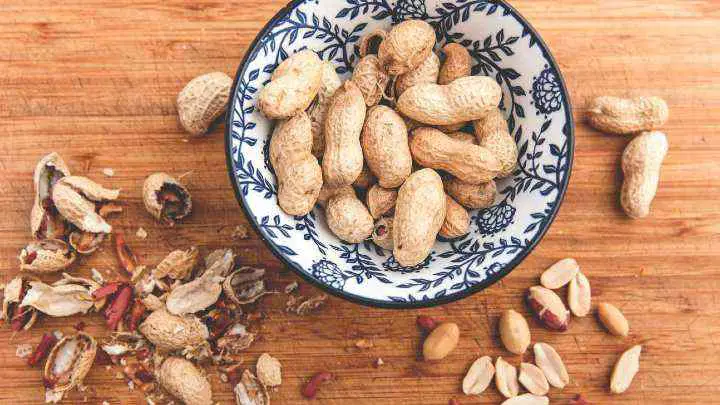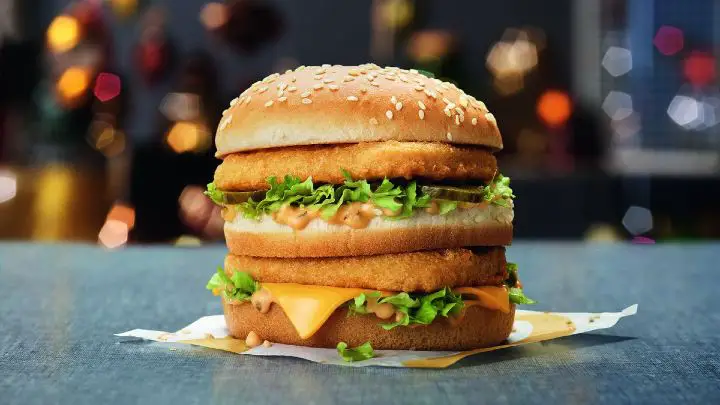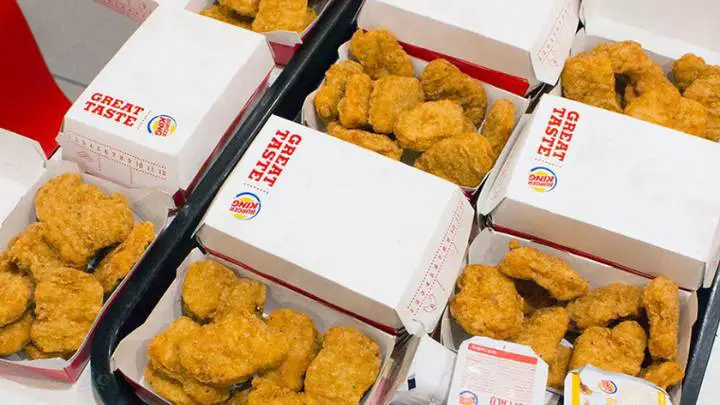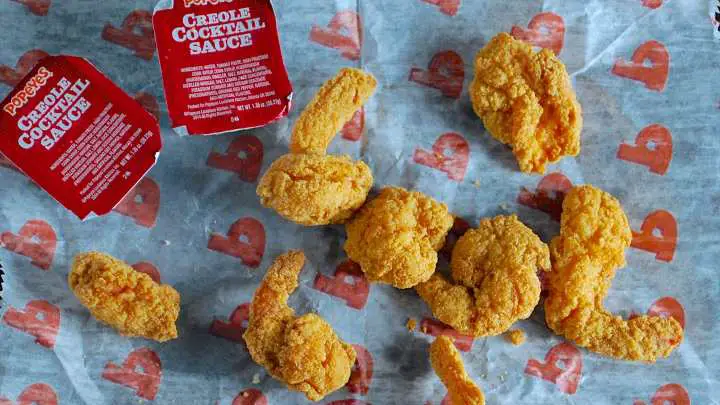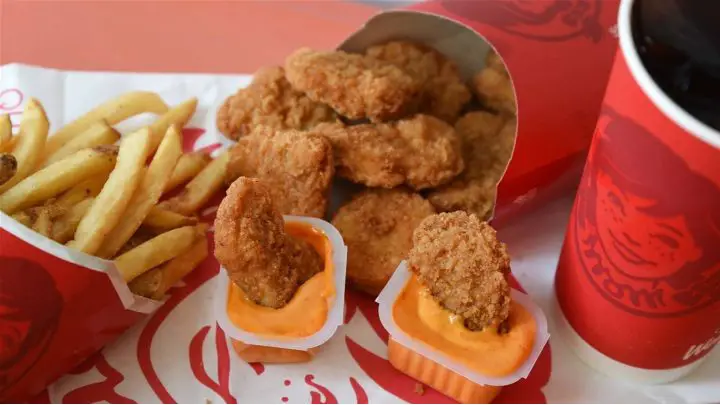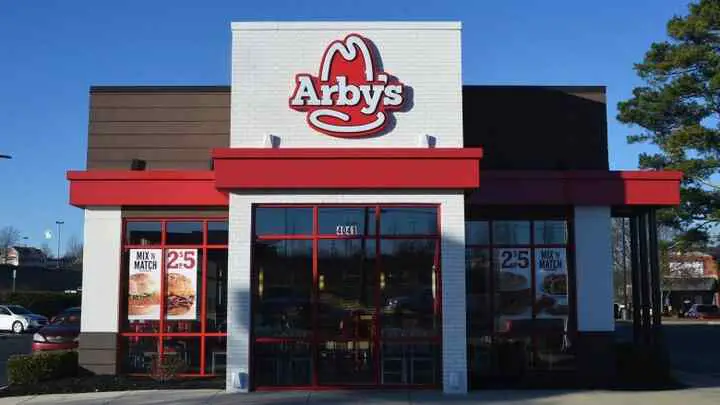Peanuts are a great source of protein, and they’re also full of healthy fats. But what happens when you buy too much? Do they go bad?
The short answer is yes, peanuts can go bad. When they do, they’ll have a very pungent smell and taste that’s off-putting to many people.
This article discusses what peanuts are, whether they go bad, how to preserve them, and more. Keep reading to find out.
What Are Peanuts?
Peanuts are legumes, which means they’re part of the same family as peas, beans, and lentils. They are native to South America and Central America, but you can find them all around the world today.
A peanut contains a large number of fats, protein, dietary fiber, and vitamin E. It also has many other nutrients, including folic acid, niacin, magnesium, and potassium.
Peanuts are mostly eaten as a snack food— they’re crunchy and salty, and they go great with juices. They are also used as an ingredient in many foods and drinks such as ice cream and peanut butter.
Do Peanuts Go Bad?
Yes, they do. However, peanuts have a long shelf life and don’t go bad easily. They can last for up to one year or more if you keep them in a cool, dry place.
The outer shell of the peanut is made up of a thick skin that protects the nut from insects, bacteria, and other contaminants. This is why peanuts don’t go bad easily.
If you want to keep your nuts fresh for as long as possible, store them in a sealed container in the fridge or freezer. And if you suspect that they have gone bad, discard them immediately.
Several signs indicate when peanuts have gone bad, but the most obvious sign is an off-odor or color. You may also notice moisture buildup inside the container or an off-taste (the nuts will taste bad).
What Is The Shelf Life Of Peanuts?
In-shell
If you store in-shell peanuts in your pantry, they will last for about 4 months. If you store them in the fridge, they will last for about a year. You can also freeze them for up to two years without losing any of their nutritional value.
Shelled
If you store shelled peanuts in your pantry, they should be fine for about 4 weeks. They will last for about 1 year in the fridge and about 2 years in the freezer.
SEE: Here’s What You Should Know About Almonds and Their Shelf Life
Can You Eat Expired Peanuts?
Yes, you can. Peanuts are usually good for about six months after their expiry date. They may not taste as good as fresh ones, but they’re still edible.
So if you’re fine with the taste, there is no need to throw away your expired nuts, as long as they are not rotten. You can also use them in food and drink recipes. Just don’t use too much to avoid changing the flavor profile of your recipe.
How to Tell if Peanuts Are Bad
Check for mold
The best way to know if your nuts have gone bad is to look at them for signs of mold on the shell or inside the nut. If you see signs of mold on your nuts, discard them immediately to avoid food poisoning or other illnesses caused by mold.
Rancid smell
If the nuts smell like rancid oil, throw them away immediately because they’re no longer safe to eat. Rancid-smelling nuts can make you sick if consumed in large amounts over time.
Check for dryness
If the nuts are dry or shriveled up, there’s a good chance they’ve gone bad. Discard them immediately to avoid getting ill from bacterial contamination.
SEE: Food Poisoning Signs You Need to Know
Inspect the color
If the nuts have a dull appearance or they have turned dark brown, then they are past their prime. Throw them away immediately because they could be toxic and harmful to your health.
Check for holes
Check if there are any holes in the nuts or on the shells. If there are, throw away the nuts immediately because there is a chance that pests such as moths or beetles have gotten into them.
Sour taste
Taste your nuts and discard them if they taste sour or bitter. This means they’ve gone rancid and can cause illness if consumed.
How to Preserve Peanuts
Store in a cool dry place
Once you bring them home from the store, keep your nuts in an airtight container and store them in a cool, dry place like your pantry or cabinet. Do not store them near heat sources such as stoves, because this will cause them to go bad faster.
Refrigerate them
Store the nuts in a tightly sealed container (to keep off moisture), then place them in the refrigerator. If there are holes in the container, use plastic wrap or aluminum foil as an extra layer of protection.
Freeze them
To freeze your nuts, spread them on a cookie sheet in one layer and place them in the freezer until they’re hard (takes about two hours). Transfer them to an airtight container or plastic bag and store them in the freezer for up to six months.
If you want to defrost the nuts before use, simply place them in a bowl and let them sit at room temperature for two hours.
Dry them
Drying is another excellent method for preserving peanuts because it preserves both flavor and texture well. Place the peanuts in a single layer on parchment paper or a baking sheet and bake in an oven set at 225 degrees for about 12 hours.
Alternatively, place them in a dehydrator set at 110°F (43°C) for six hours or until they are completely dry. Allow the roasted nuts to cool before placing them into an airtight container and storing them in your pantry.
SEE: How to Get Free Food at Wendy’s
FAQs
Is it okay to eat peanuts every day?
Yes, it is. If you enjoy eating peanuts every day, there’s no reason not to do so. Just keep in mind that they’re high in fat, so eating too many can cause weight gain.
Can children have peanut allergies?
Yes, they can. Peanut allergies are common in children and can cause serious reactions, including anaphylaxis. There is no cure for peanut allergy, but there are many treatments available to help manage it effectively.
If you have a child who has a peanut allergy, you need to avoid peanuts altogether. But if you do have them in your home, be sure to keep them separate from other foods.
Are peanuts good for you?
Yes, they are. Peanuts are one of the healthiest foods you can eat. They’re rich in protein, fiber, healthy fats, and other nutrients your body needs to function properly.
Can you eat frozen peanuts?
Yes, you can. You can eat frozen peanuts alone as a snack or side dish and you can use them as an ingredient in recipes. Frozen peanuts have been blanched, then frozen to prevent rancidity and improve their taste and texture.
Is peanut butter made of peanuts?
Yes, it is. Manufacturers make peanut butter by grinding dry roasted peanuts into a paste and then adding salt and sugar to taste.
Peanut butter is a very popular spread that comes in different flavors and you can use it as an ingredient in many recipes.
Conclusion
Peanuts go bad, but if you store them properly, they’ll last you a long time.
The best way to store them is in an airtight container or sealed bag (to keep out moisture). You should then keep the container or bag in your pantry, refrigerator, or freezer. You can also dry roast them before storing them.
If you follow these simple guidelines, then your peanuts should stay fresh for as long as possible. Once they start to get old and taste stale (which will happen eventually), then it’s time to throw them away.
Thanks for reading.
Visit Cheffist to learn more about the shelf life of nuts.
